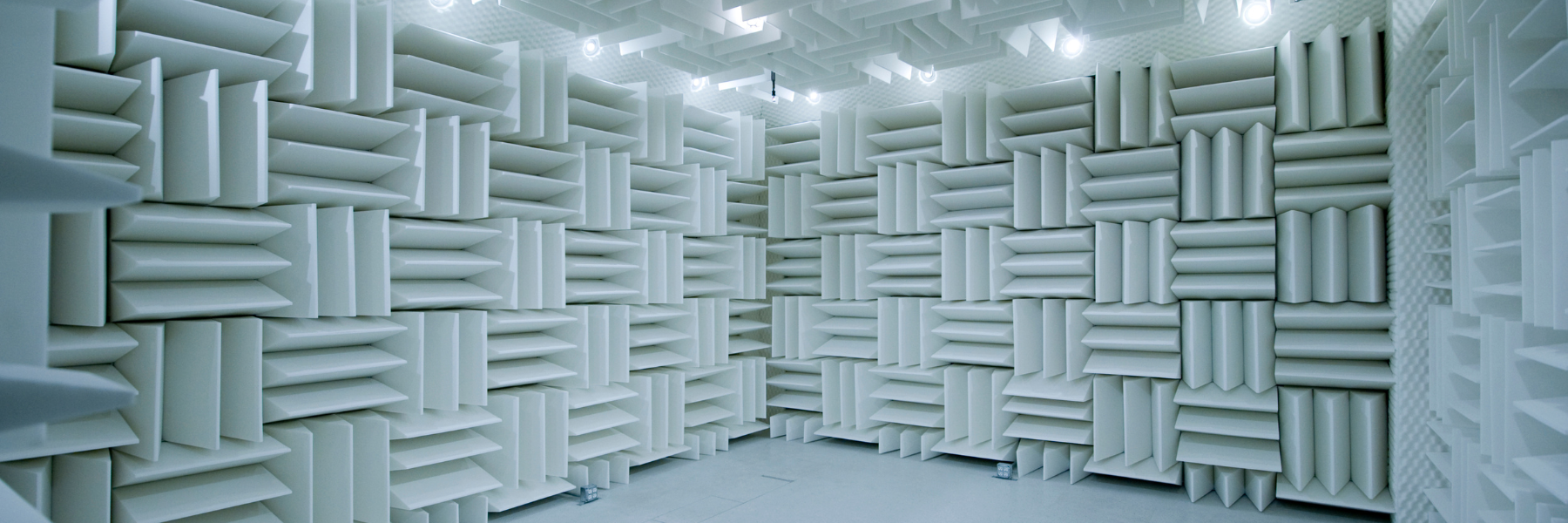How to Manage Noise in Your Laboratory
Laboratories are always busy with activity, but excessive noise can negatively affect people’s work. From disrupted experiments to potential health risks, laboratory noise management is critical for work quality and occupational safety.
At Innova Design Group, we understand the unique challenges of laboratory work, including disruptive noise pollution. That’s why we work to create interior design solutions for the commercial sector – including laboratories – to tackle noise challenges head-on.
Continue reading for practical tips on reducing noise in your lab and implementing effective noise control measures.
What Makes a Noisy Lab Problematic? Health and Safety Risks
Constant exposure to loud lab noises can lead to serious health risks, including noise-induced hearing damage and increased stress levels. The UK’s Control of Noise at Work Regulations 2005 sets clear guidelines to protect workers from these dangers. The Health and Safety Executive (HSE) emphasises the importance of noise monitoring and risk assessment in the workplace. In labs where precision is crucial, even moderate noise levels can result in miscommunication, leading to potentially harmful mistakes.
Impact on Work
High noise levels in labs are also productivity killers. They reduce people’s ability to focus, delay tasks, and increase errors in sensitive work. Imagine trying to measure precise quantities or conduct delicate experiments with significant noise in the background. It’s a recipe for inaccurate results and wasted time.
What Are the Most Common Sources of Noise in Labs? Lab Equipment
Many standard lab tools are notorious noise-makers. Based on the Laboratory Noise Fact Sheet, here are some common noise sources:
-
Large analysers (e.g., chemistry analysers)
-
Centrifuges
-
Vacuum pumps and vacuum systems
-
Stirrer motors
-
Rock crushers/mills/grinders
-
Incubators
-
Probe sonicators
-
Compressors for cryostats
-
Ventilation systems (e.g., fume hoods, biosafety cabinets)
These pieces of equipment are significant noise contributors, especially when multiple devices operate together, potentially exceeding safe decibel levels.
External Noise
Labs are not isolated; they’re part of larger areas, like office blocks. Environmental noise like nearby construction or road traffic can seep in, adding to the noise load. This is why considering environmental noise in your noise management strategy is crucial.
Human Activity
Conversations, material handling, and the general bustle of multiple researchers working together all contribute to the overall noise level in the laboratory.
How to Reduce Noise in Your Lab: Four Practical Tips
Consider Low-Noise Lab Equipment
Investing in newer, quieter models of lab equipment can make a big difference. Modern centrifuges, for example, come standard with noise-reduction features. Innova Design Group creates specialised lab layouts that accommodate these quieter technologies to maximise their overall effectiveness and reduce noise at the source.
Install Acoustic Panels and Soundproofing
Sound-absorbing materials prevent sound waves from reflecting and bouncing off hard surfaces, reducing overall noise. We recommend adding acoustic panels to walls, ceilings, or around noisy equipment to reduce sound reflection. This is an effective engineering control for managing noise in the workplace.
Our Lab Furniture & Fit Out Service is a fully bespoke lab installation service designed to meet the needs of modern laboratories, including noise reduction.
Isolate Noisy Equipment
Sometimes, the best solution is separation from the noise source. High-noise equipment like centrifuges or rock grinders can be placed in separate rooms, or soundproof enclosures can be used to keep the main lab area quiet. This approach aligns with the HSE’s guidance on controlling noise at work.
Optimise Lab Layout to Reduce Noise
Smart design matters for noise reduction. You can minimise noise propagation throughout the lab by carefully planning equipment placement and workstations. Experts in space planning will create layouts that reduce noise transfer and increase lab productivity.
How Does Lab Design Help Reduce Noise?
At Innova, we don’t just design labs – we create quiet, efficient workspaces. Our solutions incorporate custom furniture, noise-proofing materials, and well-thought-out layouts to tackle noise pollution at its source.
For example, we design specialised workstations with built-in acoustic panels or create dedicated “quiet zones” for noise-sensitive work. Our approach considers the specific noise levels generated by different lab activities and implements targeted noise control measures.
Importance of Noise Monitoring and Assessment
Implementing a robust noise monitoring program is crucial for maintaining a safe and productive laboratory environment. Using sound level metres and following guidelines set by organisations like OSHA (Occupational Safety and Health Administration), labs can:
-
Assess noise levels regularly
-
Identify areas where noise exposure may exceed safe limits
-
Implement appropriate hearing protection measures where necessary
-
Develop a comprehensive hearing conservation program


